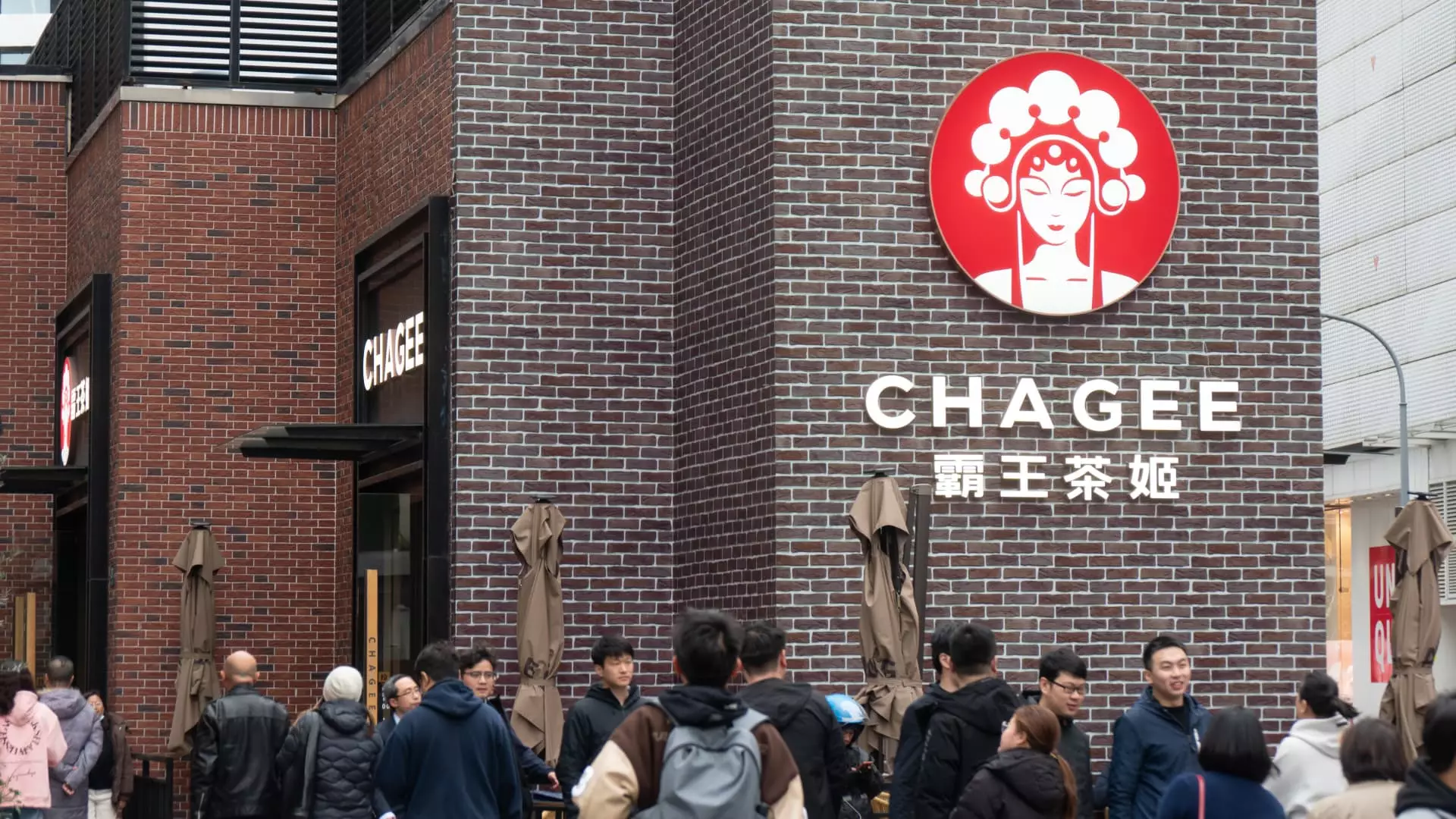In an audacious move, Chagee, the Chinese bubble tea titan, is set to make waves in the U.S. market by filing for an initial public offering (IPO) on Nasdaq, bearing the ticker “CHA.” Although the company boasts an impressive 6,400 locations across several Asian markets, the reality of its U.S. expansion prompts skepticism rather than enthusiasm. It’s a bold leap into unfamiliar waters, and the circumstances surrounding its entry indicate a more precarious path than the company is willing to accept.
China’s Tea Domination: Catalyst or Burden?
China is an undisputed leader in tea consumption, with Chagee predominantly flourishing in its home turf. Approximately 97% of its teahouses are located in China, raising the question: can it replicate its local success in a market dominated by coffee culture? Despite having netted a hefty $344.5 million from a staggering $1.7 billion in revenue in 2024, this financial success may not translate to American palates. Chagee risks facing heavy competition not only from established global brands but from an already saturated bubble tea market that is seeing new entrants emerge.
Political Climate: A Brewing Storm
The IPO plan comes at a time when U.S.-China relations are peaking in tension, casting a shadow over the financial aspirations of many Chinese firms. With only a meager 5% of the Chinese companies on major U.S. exchanges from January 2023 to January 2024, this trend signals a declining appetite among U.S. investors for foreign stocks, particularly those hailing from China. Recent hesitance about investing in Chinese businesses—exemplified by Shein’s pivot to London for its IPO—underscores the potential hurdles that lie ahead for Chagee.
Lessons from Luckin Coffee: Why Vigilance is Key
The specter of Luckin Coffee looms large over this IPO. Founded in 2017, Luckin’s meteoric rise was followed by a catastrophic fall due to fraudulent practices that resulted in delisting and bankruptcy. While Luckin’s recovery has been commendable—regaining its footing as China’s leading coffee retailer—it raises alarms for Chagee. Investors may be hesitant to gamble on yet another Chinese beverage venture under the shadow of such a notorious precedent. The fear of scandal lingers heavily, threatening to tarnish a brand before it even establishes a foothold.
Visionary Goals: Dreaming Big or Overreaching?
Chagee aims to roll out 100 locations across various countries, create 300,000 jobs, and brew a staggering 15 billion cups of tea annually. While aspirational, these grand ambitions may come off as a misplaced bravado. Acknowledging the complexity of international expansion and the unique challenges of the beverage industry in different cultures is essential. The mismatch between strategic planning and execution may lead to shortcomings in operational success and brand-building efforts.
Chagee’s endeavor for an IPO carries with it both the weight of ambition and the burden of scrutiny. For a center-wing liberal observer, the cautious optimism surrounding this venture underscores a fundamental question: Are the rewards worth the risks taken in an increasingly volatile landscape? The coming months will reveal if Chagee can indeed turn its vision into reality, or if it will join the ranks of forgotten hopefuls alongside its ill-fated predecessors.

Leave a Reply